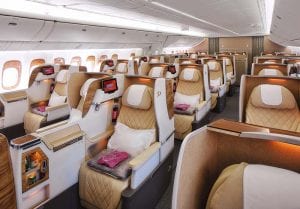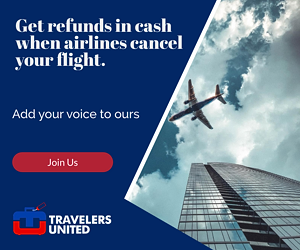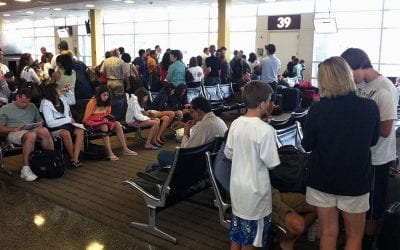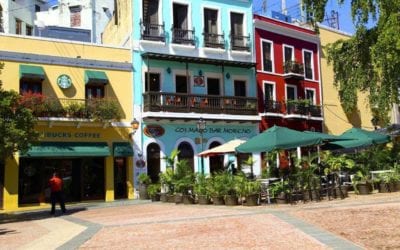Leisure travelers know business travel is a major factor, but leisure travelers are filling the business void.

But I’m not alone. And while a great deal of business travel is booked online, human travel advisors are involved in many cases — especially with executive travel. (It’s tough to break down numbers, because some physical agencies have online booking engines.)
Recent statistics are meaningless, but in 2019 one study found US companies spent $117 billion on business travel. However, the amount of money that moves through the travel industry because of business travel is astronomical. Without business travel, many extras that frequent fliers and hotel bargain hunters enjoy would not exist.
Already, upgrade perks are dropping like flies. All because of the lack of business travelers. Then again, leisure travelers are beginning to pick up the slack with the purchase of upgraded tickets. The near future belongs to those travelers who can pay more for bigger legroom.
Airlines need travelers to fill business class seats — so do passengers.
The US Travel Organization puts the total business travelers spend at over $334 billion, including meetings and incentive travel. This money is spent in many ways — on airline tickets, trains, hotels, ground transportation, and meals. So clearly, the revenue is the importance of business travel. Here’s why it’s important to average travelers.
It starts with airlines. Quite frankly, most major airlines do not care much about leisure travelers, especially bargain hunters, because that’s not how they make their money. A full plane full of infrequent fliers who booked early for discounts is a bonus. But what carriers really want are last-minute, high-paying business travelers, especially in premium classes.
Airlines once flew routes that business travelers use most. Today, they are looking at leisure travelers.

Flights with many high-paying business travelers also get the best planes. Cross-country flights from San Francisco or Los Angeles to and from New York are not just popular, they attract not only corporate but entertainment travelers as well. So the routes are very competitive, often with flat-bed seats, and newer planes with nicer seats and service even in coach.
On the other hand, Hawaii gets mostly leisure travelers, many of them cashing in miles or trying to upgrade, and as a flight attendant told me once, it’s not a big money-making route so there’s no need to use the “good planes.”
The pandemic allowed airlines to fly better planes to Hawaii.

It has meant that leisure travelers are not finding flatbed seats available.
Luxury hotels recognize the importance of business travel and need leisure traveler upgrades to keep these perks.
First-class and deluxe hotels, especially in cities, were another casualty of fewer business travelers. Along with these better hotels are the extensive amenities many savvy leisure clients have come to expect. How often the leisure traveler will pick up these new rooms is questionable.
Motels and some limited-service hotels may have always catered to a traveler who wants a place to sleep and limited amenities. Many of them remained open and didn’t have to reduce services that much. Daily maid service, maybe, but they never offered turndown, room service, bars, and restaurants. Travelers who used these hotels never expected any extra service. These limited-service hotel rates might have varied for weekends/weekdays; however, barring extraordinary events, their rates didn’t vary by any order of magnitude.
In fact, amid the pandemic, I stayed in one limited-service hotel for one night — the Carriage Inn in Ridgecrest, California. Nothing was different except for a mask and the general surreal sense of travel. However, I had to order a pizza from a masked delivery man when the restaurant closed due to an earthquake.
Hotels that cater to upscale leisure travelers have bigger weekend bargains and more booking incentives.

A few years ago the Fairmont in Washington, DC — a lovely, modern 5-star hotel — offered a $149-weekend rate through our consortium that included a $75 credit and fancy breakfast, which would have been $30 a person. (The same room on weekdays with Congress in session costs over $500.) Plus, the Fairmont offered turndown service and a welcome bottle of wine!
Even as we see leisure travel increasing at an amazing rate, the reason many hotels have been able to offer great deals on weekends and keep their staffing and service levels up, has been business travelers during the week. Hotels don’t have that revenue stream without people paying higher regular rates.
In some cases, cities like Chicago, New York, and San Francisco come to mind. Hotels can charge higher rates to leisure travelers during peak vacation times, festivals, or events. But even so, that won’t fill hotels seven days a week. Once again, leisure travelers need to see the importance of business travel.
 Restaurants need high-spending business travelers and well-heeled leisure travelers.
Restaurants need high-spending business travelers and well-heeled leisure travelers.
And while airlines and hotels stand out, other industries, including the restaurant industry in many locations, are also dependent on corporate travelers during the week.
So whether or not you travel or are in the travel industry, we cannot ignore the importance of business travel. But airlines are planning for more leisure travelers who are trying to get from their middle-American cities in more comfort. The jury is out on whether or not the leisure upgrades will allow airlines to make enough money to fill the gap left by the drop in business travelers.
Business discussion photo by Austin Distel on Unsplash
Dining photo by K8 on Unsplash
READ ALSO:
On Memorial Day join the war against COVID — honor the fallen
DOT needs more airline passenger service rules, not less

Janice Hough is a California-based travel agent a travel blogger and a part-time comedy writer. A frequent flier herself, she’s been doing battle with airlines, hotels, and other travel companies for over three decades. Besides writing for Travelers United, Janice has a humor blog at Leftcoastsportsbabe.com (Warning, the political and sports humor therein does not represent the views of anyone but herself.)




